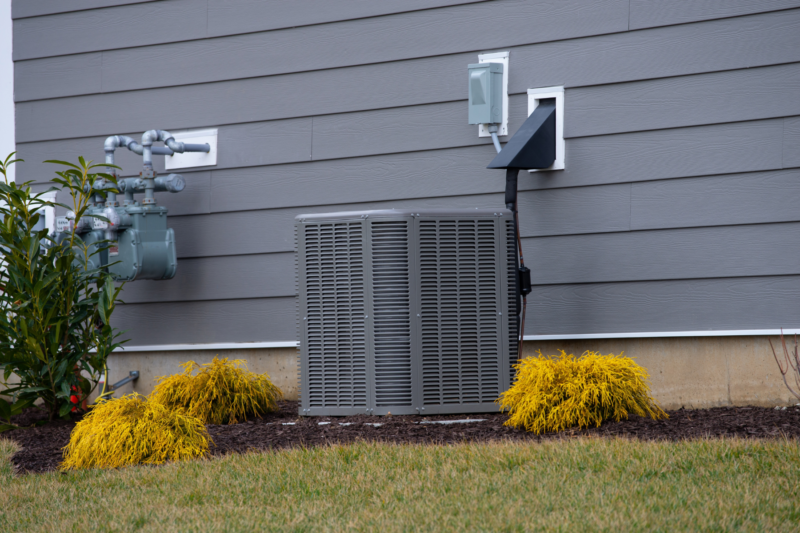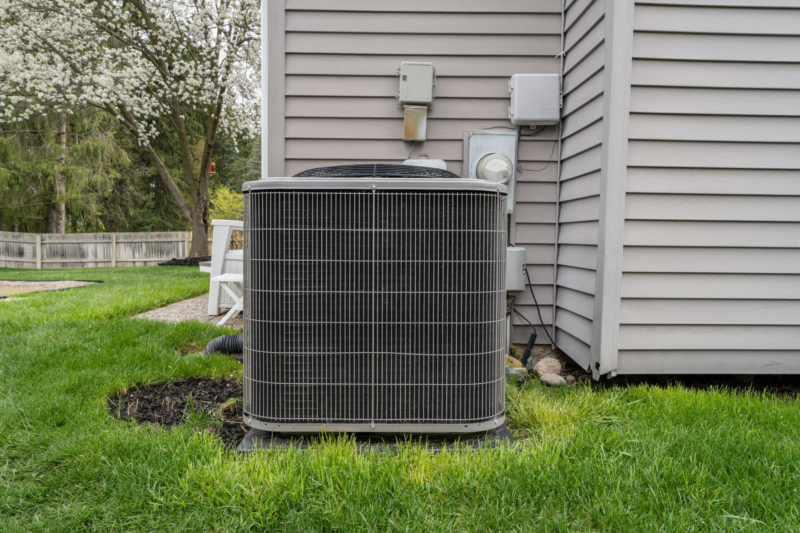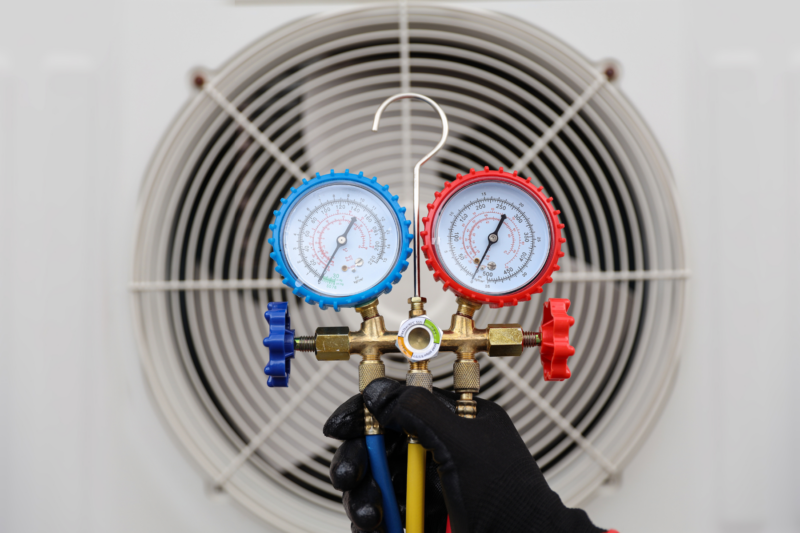We spoke previously about corrosion from insect activity, but there are many other potential sources of corrosion. Awareness and timely action are the keys to protecting the investment you have made in your home a/c equipment.
SALT
We are blessed to have the Atlantic Ocean nearby. Unfortunately, the temperate Gulfstream breezes also carry aerial salt to corrode everything in their path. Most salt can be rinsed easily either by rain or water hose. Most often, however, a decorative cabinet protects and conceals the coils. A professional must remove the panels to rinse the coils. However, there are still some things that the homeowner can do.
Plant shrubbery or install fencing on the windward side of the equipment (the direction from which the wind blows). This will greatly reduce the amount of salt air to reach the equipment. Keep plantings and structures at least 12″ back from all sides of the equipment, and at least 36″ from the “service side” to allow technician access. If you have questions, your service professional can help you.
Another source of corrosion is the home water softener system. Most systems use salt, and many use chlorine tablets that are extremely corrosive. Do not drop salt or chlorine tablets near the air conditioner when servicing the softener. Avoid allowing windblown particles of fine salt to drift toward the a/c unit. Finally, water runoff from the softener and chlorination unit must be diverted away from the base of the unit.
RAISE THE EQUIPMENT
Air conditioning equipment must not directly contact the concrete slab. Good drainage allows water to flush debris (including salt) from beneath the equipment; this protects the steel cabinet. Air conditioner units are designed with “feet” to raise them off the ground. However, rubber or hard plastic isolation pieces are the key to protection. Remember, the equipment must be tied down to guard against fierce hurricane winds.
SPRINKLERS
Irrigation is almost a necessity in South Florida. Many homes are equipped with well-pumps to draw untreated water from a shallow well. The water may not smell or taste too good and may stain the walls, but the planted areas will flourish. Chemicals that occur naturally in well water will set up a reaction and will rapidly corrode metal. Direct sprinklers away from the air conditioner. Remember, even a mild breeze can carry the mist over a distance. Strategic planting and fencing is a good solution.
SULFUR
Your air conditioner is made of copper, aluminum, and steel. Sulfur in untreated water forms corrosive acids that rust the steel cabinet, destroy the aluminum fins, and pit the copper coils to cause leaks. Sulfur is also present inside many homes with untreated or poorly treated water. The indoor air handler unit is designed to remove humidity from the home, and sulfur byproducts may corrode a cooling coil resulting in expensive leaks. Your technician can inspect for signs of leaks when performing maintenance; the best rule is, if you can smell your water, there is potential for corrosion.
BENEFITS OF MAINTENANCE
The technicians at Complete Comfort are trained to make recommendations that can help protect and extend the life of your air conditioner. During their twice-annual inspection, they can spot little problems to prevent them from getting big. They will clean your coils, clear them of debris, check visible potential leak sites, and check refrigerant levels. The cleaners, lubricants, and treatment products they use are environmentally safe and are safe to use with your air conditioner. Our goal is to make sure you have a reliable, clean, safe, and efficient system to provided you the maximum life out of your system.
Call (561) 529-6262 today to inquire about our maintenance agreements and programs.



